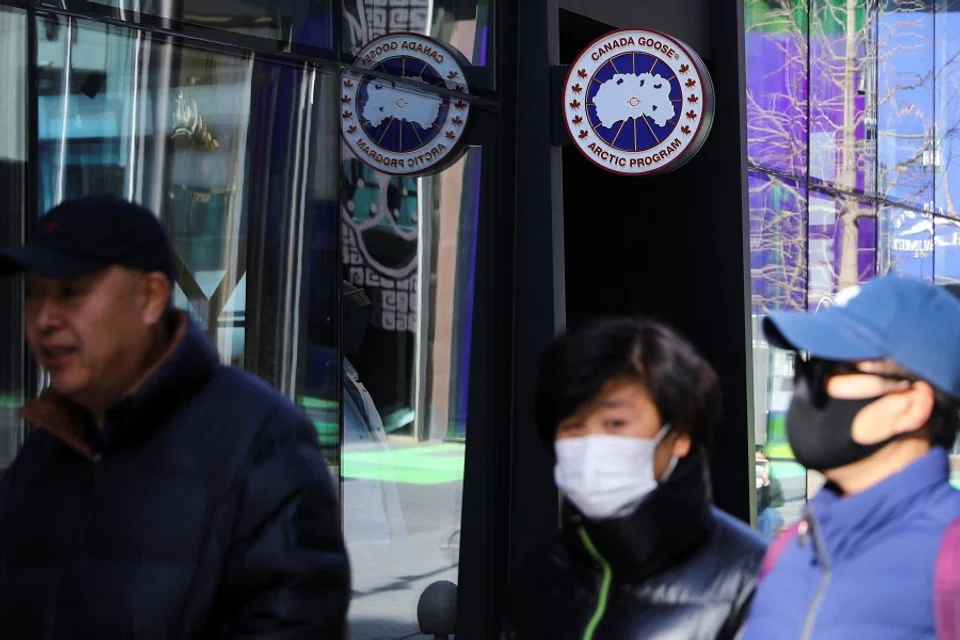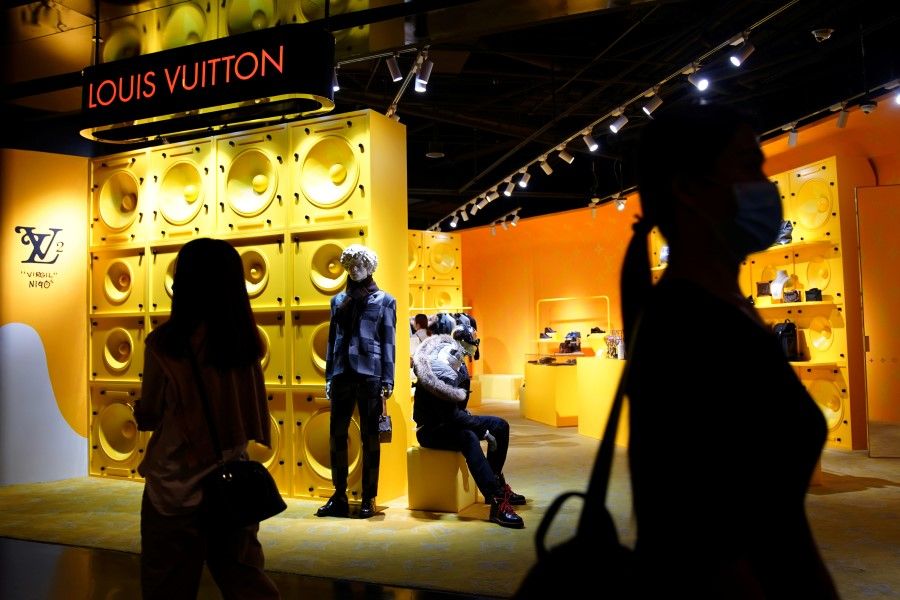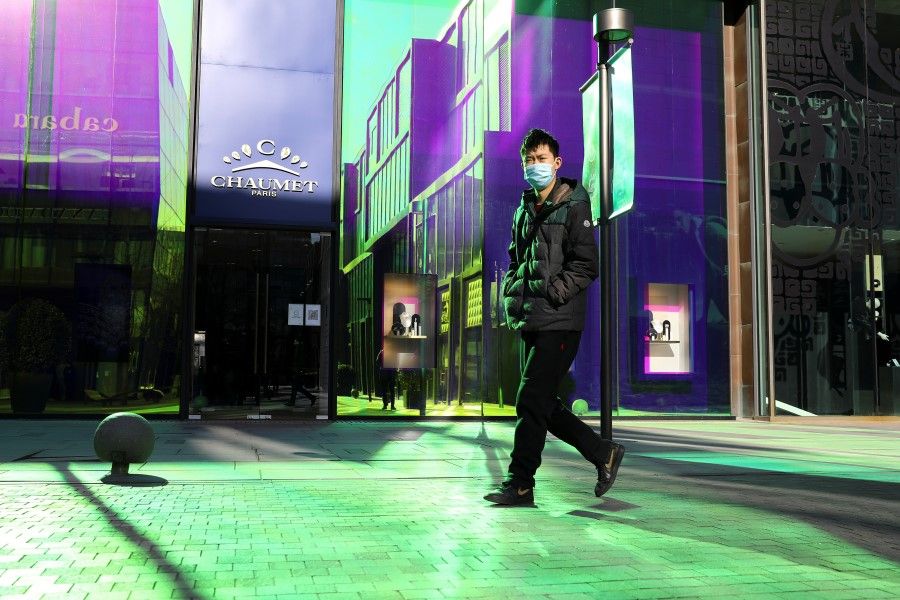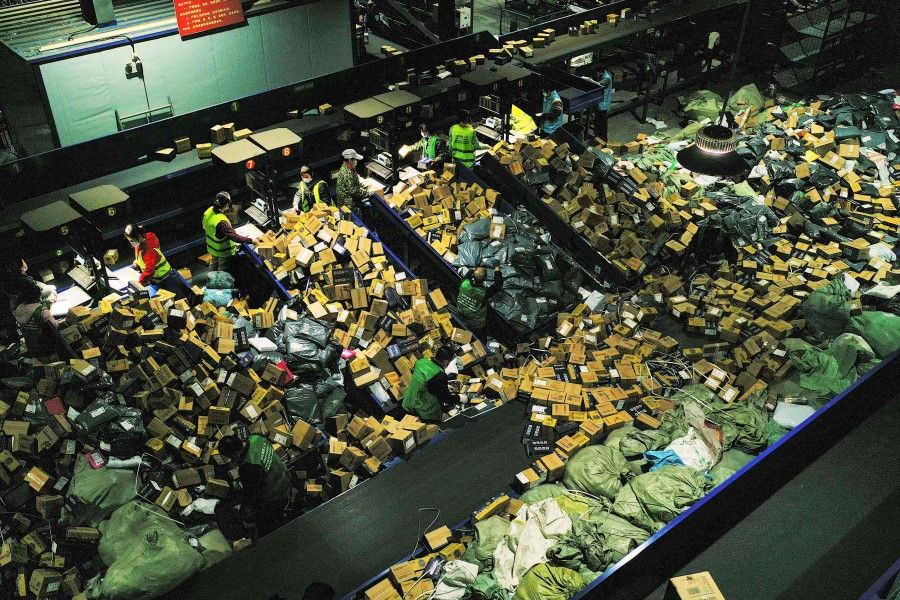Canada Goose: Why Western brands are not open to returns in China

Why do Canada Goose and Louis Vuitton (LV) have relaxed rules on returning goods in advanced countries around the world, except for China, where the rules are especially strict? It is definitely not because the ancestors of the bosses of Canada Goose and LV were part of the Eight-Nation Alliance that invaded the Qing dynasty, and "racist genes" were passed down and are acting up today; it is because of the statistics coming out of China's consumer behaviour under the current conditions in China. In other words, money determines corporate behaviour, and has nothing to do with "Western powers do not want China to get strong".
Psychological studies have shown that heart rates go up when purchasing items, leading to a feeling of euphoria, and the brain continues to release these hormones until one gets to show off their purchases. But subsequently, when rationality returns, one realises and regrets that money has been spent on new clothes that will not be frequently worn, and may even decide to return the items.
So why are many European brands not open to returns in China? Industry players have different explanations.

A fear that the Chinese may abuse a returns policy
A luxury goods marketing staff once told a journalist that when a certain health product brand just entered China in the early 2000s, it had a "no questions asked" return policy like in the US - as long as the customer was not satisfied after using the product, they could return it for a full refund as long as they still retained the packaging.
This policy had been in place for years in the US, where Americans are taught integrity from childhood.
However, when it was implemented in China, each day there was a queue in front of the store, and the brand had to change its policy.
The staff explained: "Luxury brands dare not implement 'no questions asked' returns in China partly because of the mindset and habits of Chinese consumers. If there was a 'no questions asked' returns service, some people might return items after using them just once for important occasions."
Edge Hill University psychology professor Geoff Beattie feels that while buying items makes people happy, returning items also makes people happy that they get to enjoy it for free.
Social media is also a major factor in encouraging returns. Some 10% of consumers admit that they buy new clothes and take selfies to post on Instagram or Facebook, and then return the clothes immediately.
As online shopping becomes more popular, consumer behaviour will also make returns more convenient...

China is very different from the rest of the world. Its social system is different, with a strong push to chase GDP growth. Consumers' behaviour and mentality is different from the US.
In China with WeChat and Douyin, and the narrow YOLO ("you only live once") mentality, coupled with the "likes" on selfies, a female consumer in Shanghai can buy a branded item, put it on and post a selfie; if the positive reactions or emojis are not as she expects, her enthusiasm would cool, and she would realise that this branded item costs too much given her monthly income. Once she calms down, her initial vanity would dissipate and she would be inclined to return the item for a refund.
As online shopping becomes more popular, consumer behaviour will also make returns more convenient, because online returns do not involve facing salespersons, and there is no "guilt" or awkwardness when returning items.
Limited-time discounts and promotions like Black Friday also encourage frenzy buying among consumers, which also adds to the wave of returns.
The irrationality of shopping, plus the irrationality of spreading online sentiment, plus the irrationality of nationalism and xenophobic hate, would lead to returned items for many brands of "Western powers" being tied to Chinese foreign ministry spokespersons slamming these countries.
Irrationality of nationalism
In the China market, patriotism and xenophobia can swell for no reason; the online flock effect among Chinese consumers is enormous. If the US is unfriendly to China, and Australia goes along, and South Korea also says something, the invisible hand will play up online sentiment and lead to an explosion of returns of Australian and South Korean products in the following two weeks.
The irrationality of shopping, plus the irrationality of spreading online sentiment, plus the irrationality of nationalism and xenophobic hate, would lead to returned items for many brands of "Western powers" being tied to Chinese foreign ministry spokespersons slamming these countries. It is no coincidence that Canada and China had a row over the Meng Wanzhou case, or that Canada Goose has come under fire for its return policy.

Processing returns is a significant additional cost for businesses. Apart from shipping costs, there are also packaging and cleaning costs, as well as time costs. The returned items have to be inspected and reshelved as soon as possible, otherwise, they may miss the optimum sales window.
All this creates hidden costs and pressure for businesses. A Barclaycard survey found that one-third of retailers have increased sales prices in order to cope with the costs of returns.
Online retail giant Amazon is reportedly hitting back by blacklisting those who make a habit of returning items. Will this gradually become a consensus for European brands as well? If so, will the Chinese see it as another humiliation and provocation by the Eight-Nation Alliance? The China market is big and the money is there with rich profits, but online sentiment is like the world's most intense roller coaster. Western brands are perpetually in a game of Russian roulette, where they are gods one day and devils the next.
Related: Unfair treatment of Chinese consumers? Canadian luxury winter apparel brand draws flak in China | Chic and trendy wet markets are the in-thing in China | Chinese youths are falling for the 'Squid Game trap' with Chinese characteristics | Online lending is feeding the insatiable purchasing desire of Chinese youths | Rich and wealthy 'little sisters' are the new driving force of Chinese consumerism
